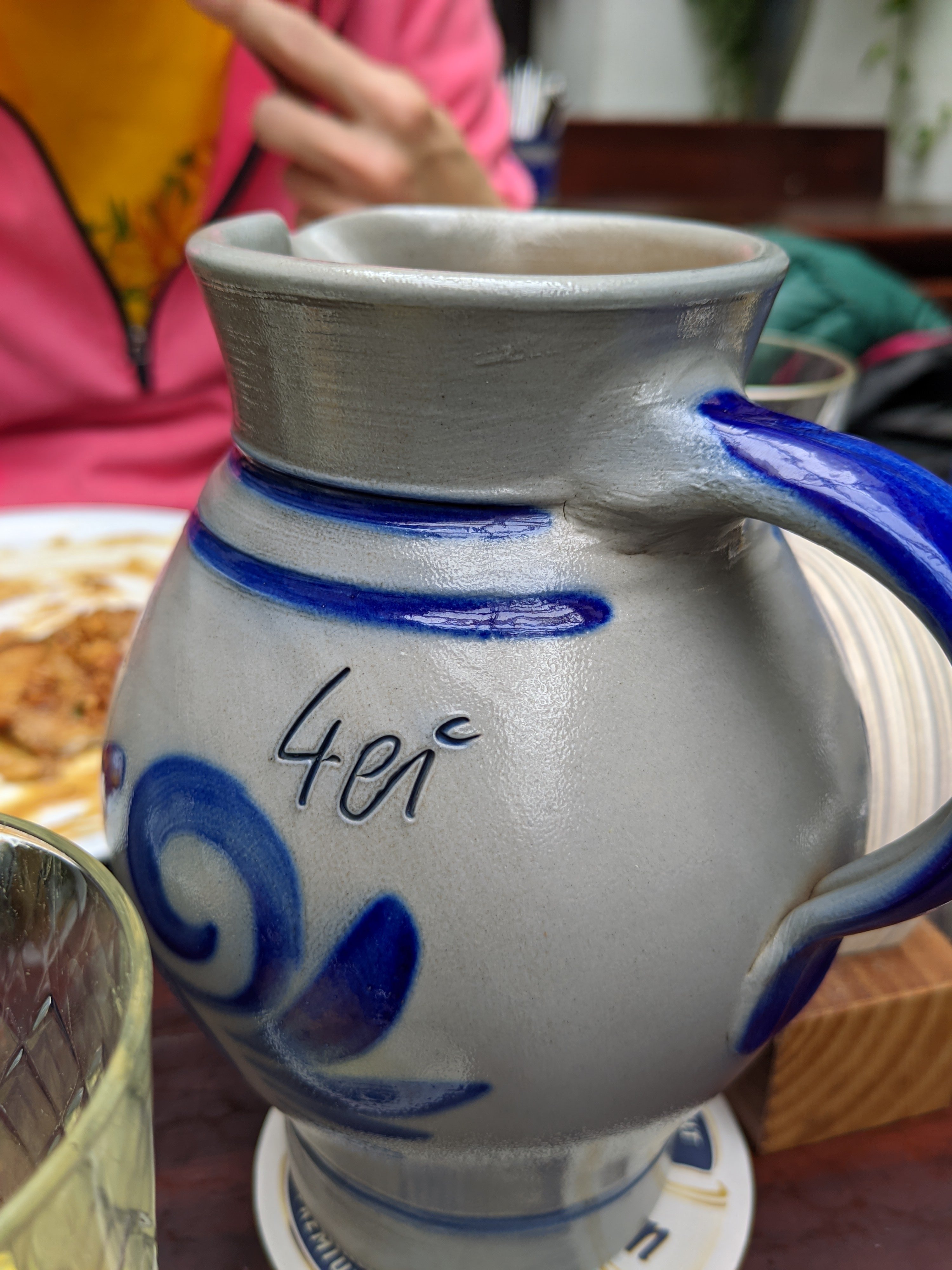Removed by mod
Real communism has never really existed. They’re just authoritarian dictatorships that hoard power and wealth at the top while paying lip service to whatever variant of social policy they offer the masses. The people are never actually given the power over the State or control of production.
Removed by mod
Sorely lacking within the U.S. Left is any rational evaluation of the Soviet Union, a nation that endured a protracted civil war and a multinational foreign invasion in the very first years of its existence, and that two decades later threw back and destroyed the Nazi beast at enormous cost to itself. In the three decades after the Bolshevik revolution, the Soviets made industrial advances equal to what capitalism took a century to accomplish—while feeding and schooling their children rather than working them fourteen hours a day as capitalist industrialists did and still do in many parts of the world. And the Soviet Union, along with Bulgaria, the German Democratic Republic, and Cuba, provided vital assistance to national liberation movements in countries around the world, including Nelson Mandela’s African National Congress in South Africa.
Left anticommunists remained studiously unimpressed by the dramatic gains won by masses of previously impoverished people under communism. Some were even scornful of such accomplishments. I recall how in Burlington Vermont, in 1971, the noted anticommunist anarchist, Murray Bookchin, derisively referred to my concern for “the poor little children who got fed under communism” (his words).
Those of us who refused to join in the Soviet bashing were branded by left anticommunists as “Soviet apologists” and “Stalinists,” even if we disliked Stalin and his autocratic system of rule and believed there were things seriously wrong with existing Soviet society. Our real sin was that unlike many on the Left we refused to uncritically swallow U.S. media propaganda about communist societies. Instead, we maintained that, aside from the well-publicized deficiencies and injustices, there were positive features about existing communist systems that were worth preserving, that improved the lives of hundreds of millions of people in meaningful and humanizing ways. This claim had a decidedly unsettling effect on left anticommunists who themselves could not utter a positive word about any communist society (except possibly Cuba) and could not lend a tolerant or even courteous ear to anyone who did.
…
The upheavals in Eastern Europe did not constitute a defeat for socialism because socialism never existed in those countries, according to some U.S. leftists. They say that the communist states offered nothing more than bureaucratic, one-party “state capitalism” or some such thing. Whether we call the former communist countries “socialist” is a matter of definition. Suffice it to say, they constituted something different from what existed in the profit-driven capitalist world—as the capitalists themselves were not slow to recognize.
First, in communist countries there was less economic inequality than under capitalism. The perks enjoyed by party and government elites were modest by corporate CEO standards in the West, as were their personal incomes and life styles. Soviet leaders like Yuri Andropov and Leonid Brezhnev lived not in lavishly appointed mansions like the White House, but in relatively large apartments in a housing project near the Kremlin set aside for government leaders. They had limousines at their disposal (like most other heads of state) and access to large dachas where they entertained visiting dignitaries. But they had none of the immense personal wealth that most U.S. leaders possess.
The “lavish life” enjoyed by East Germany’s party leaders, as widely publicized in the U.S. press, included a $725 yearly allowance in hard currency, and housing in an exclusive settlement on the outskirts of Berlin that sported a sauna, an indoor pool, and a fitness center shared by all the residents. They also could shop in stores that carried Western goods such as bananas, jeans, and Japanese electronics. The U.S. press never pointed out that ordinary East Germans had access to public pools and gyms and could buy jeans and electronics (though usually not of the imported variety). Nor was the “lavish” consumption enjoyed by East German leaders contrasted to the truly opulent life style enjoyed by the Western plutocracy.
Second, in communist countries, productive forces were not organized for capital gain and private enrichment; public ownership of the means of production supplanted private ownership. Individuals could not hire other people and accumulate great personal wealth from their labor. Again, compared to Western standards, differences in earnings and savings among the populace were generally modest. The income spread between highest and lowest earners in the Soviet Union was about five to one. In the United States, the spread in yearly income between the top multibillionaires and the working poor is more like 10,000 to 1.
Third, priority was placed on human services. Though life under communism left a lot to be desired and the services themselves were rarely the best, communist countries did guarantee their citizens some minimal standard of economic survival and security, including guaranteed education, employment, housing, and medical assistance.
Fourth, communist countries did not pursue the capital penetration of other countries. Lacking a profit motive as their motor force and therefore having no need to constantly find new investment opportunities, they did not expropriate the lands, labor, markets, and natural resources of weaker nations, that is, they did not practice economic imperialism. The Soviet Union conducted trade and aid relations on terms that generally were favorable to the Eastern European nations and Mongolia, Cuba, and India.
All of the above were organizing principles for every communist system to one degree or another. None of the above apply to free- market countries like Honduras, Guatemala, Thailand, South Korea, Chile, Indonesia, Zaire, Germany, or the United States.
But a real socialism, it is argued, would be controlled by the workers themselves through direct participation instead of being run by Leninists, Stalinists, Castroites, or other ill-willed, power-hungry, bureaucratic cabals of evil men who betray revolutions.
Unfortunately, this “pure socialism” view is ahistorical and nonfalsifiable; it cannot be tested against the actualities of history. It compares an ideal against an imperfect reality, and the reality comes off a poor second. It imagines what socialism would be like in a world far better than this one, where no strong state structure or security force is required, where none of the value produced by workers needs to be expropriated to rebuild society and defend it from invasion and internal sabotage.
The pure socialists’ ideological anticipations remain untainted by existing practice. They do not explain how the manifold functions of a revolutionary society would be organized, how external attack and internal sabotage would be thwarted, how bureaucracy would be avoided, scarce resources allocated, policy differences settled, priorities set, and production and distribution conducted. Instead, they offer vague statements about how the workers themselves will directly own and control the means of production and will arrive at their own solutions through creative struggle. No surprise then that the pure socialists support every revolution except the ones that succeed.
- Michael Parenti, Blackshirts and Reds
Counterpoint: my parents and grandparents lived in the Soviet Union, and I now live in Ukraine, with many of Soviet systems still fresh in memory, if not in place. Priority was not placed in the human service, as much as you want to pretend through rose tinted glasses. The rest of your quote is generalisation of my words that I never said.
Update: oh wait, the fourth point is also blatantly untrue. Soviets literally swallowed a whole host of countries that happened to be occupied by Russian Empire at the time of revolution. Of course they wouldn’t need to invade them: the job was already done for them.
How are you gonna blame soviets for the russian empire?!
Removed by mod
You changed your comment
Removed by mod

Removed by mod
Some of us read entire books, you should try it sometime.
The USSR was a social democracy, there can be no such thing as a “communist country”.
Removed by mod
The USSR had a democracy and many democratic elections. It was just not a liberal democracy. The USSR had a welfare state, and so was a social democracy.
Removed by mod
Removed by mod
What not reading theory does to an mf.
Removed by mod
You’d have to let coherent arguments first, not just purely vibes based assertions.
Removed by mod
Lol, speaking of stereotypes: self proclamation anarchists acting like literal children.
Removed by mod
Of course, there are no true communists.
The first step in a successful revolution is eliminating all competing revolutionaries.
And it never will exist, because politically inert western liberals who have declared themselves the true arbiters of “real communism” will reflexively disqualify anything western propaganda tells them to.
I would like to hear your examples of it existing.
No, I’m agreeing with you, only Western liberals who get their knowledge from Wikipedia are actually communists: the rest are just devious, evil, foreign authoritarians who are merely pretending in other to deceive the true protagonists of history: western liberals.
Removed by mod
Lol, you can tell the redditers by the way they all try to talk like smug anime villains.
Removed by mod
It will never exist because there are a huge number of people who want a strongman leader to tell them what to do. That has nothing to do with “inert western liberals,” that’s been the truth for the entire history of humanity.
Also use the term “Democratic Socialism” to contrast with the other Communist/Socialist ideologies that involves Vanguardism. People hear “Socialism” and think “Big Bad Dictator”, I’m like bruh, Socialism and Democracy isn’t mutually exclusive, its totally compatible.
I personally prefer libertarian socialism (in particular, anarchism), but I’m down for anything that is not authoritarian and not capitalistic.
that is not authoritarian
all states are authoritarian the nature of the state is authority
Yes, that’s why the goal should be to make states obsolete
The only way to accomplish that is with international socialism
That would be ideal, yes
Cause them to wither away, if you will.
So you’re not an anarchist.
Very cool argument, very logical and coherent
By all means, tell me about these non-authoritarian countries that you, as an anarchist, believe in.
It’s arguably not socialism without democracy in some form. If the people have no say, then it isn’t social ownership. Vanguardism can claim it’s a step towards socialism, but until power is decentralized somehow it’s just state capitalism.
Vanguardism is democratic.
That’s pretty much what Engels called it. He argued it was a step in dismantling capitalism, similar to Lenin.
State ownership of the productive forces is not the solution of the conflict, but it contains within itself the formal means, the key to the solution.
So sure, maybe they were socialist in intent, but vanguardism is really just state capitalism until power is decentralized.
The external forces in the west via war, opposition, and sanctions, had a part to play in this Soviet contradiction.
This is a communist space, there is no ‘waking up’
I’m not sure how you think quoting words that were written before Soviets’ massive failure to build anything described in them would help your argument, but sure
Lol, the sheer irony of a self proclaimed anarchist saying that the Soviet were a “massive failure to build anything”.
Maybe you should actually read what I linked. Ohhh sorry, I forgot, anarchists think reading is authoritarian.
Also gotta remember about the Irish Potato Famine where the English just literally stood by and said “well yeah that’s just how it is” due to “free market” reasons. (In fact, they made everything worse by demanding that Ireland continue to export wheat)
The Irish Potato Famine killed approximately 1 million people due to “free market above all” ideology.
Don’t forget the, “no, you can’t grow what you used to eat, you have to grow potatoes” part.
The worst part is they could and did grow what they used to eat. It just was packed off to England while the Irish starved as their own potato crops (which they could afford to eat) failed.
There was no famine. It was a deliberate and political choice to let the people who grew the crops starve.
Malthusianism is very different from “free market reasons”.
But in any case those were all internally contradictory excuses.
Ye the world was a peaceful place before capitalism, there were no wars, no slaves and no …
checks history books
Oh no
Oh no no no no
Scale. It’s about scale and centralization. Sure there were slaves but capitalism made more than ever in human history. Sure there were wars but capitalism made them bigger and further away from the rich nations committing them’s population.
It’s about scale. It’s like comparing a single thief to a crime syndicate of organized thieves and saying “well there has always been thieving”
Yes. But never with so much damage.
Sure there were slaves but capitalism made more than ever in human history but capitalism made them bigger and further away from the rich nations committing them’s population
Wouldn’t completely agree here. There has simply been a massive technological advancement if we compare, for example, the “norse raids” with “european raids”. Europeans could transport more and travel further. Also, there have been way more people alive if we compare those timeframes. Global population has grown steadily.
Don’t get me wrong, capitalism certainly had a certain impact, but pretending like capitalism is the sole source is dishonest at best and stupid at worst. There have always been powerhungry people. Capitalism just gave everyone a chance to be power hungry instead of just the select few that were born into places of power.
Something I’d also like you to keep in mind that every communist regime that wasn’t 50 people on a deserted island has resulted in a disaster for the population and surrounding countries. The soviet union has waged more than 15 offensive wars, for example georgia, poland, finland, iran, czech etc., which is almost as much as the US which has existed for like 250 years at this point. So pretending that communism is completely free of the things you criticize capitalism for is pretty dumb tbh.
And theres the rub. You are willing to grant this system that HAS committed great evils every kinda leeway in the book. You’ll handwave away any kind of evils it has committed as “well those things just happen, and its not really capitalism as a systems fault” but when it comes to communism you will do away with those same excuses. So lets play the game where no system has excuses, count the bodies and then compare then? Or we excuse both for their human failings, count the bodies and compare. Either way you cut it, capitalism comes out worse, so you wont do that. You’ll excuse the one and not the other. It’s the only way you can see past your bodies.
You are willing to grant this system that HAS committed great evils every kinda leeway in the book
Yes, because there is no system that’s perfect. You have to accept shortcomings. Nowhere have I said that capitalism is the perfect system and solution to all of humanities problems, but when I look at the raw numbers, it’s dozens time better than practiced communism.
With the introduction of capitalism, extreme poverty rates have decreased MASSIVELY, from ~85% during the 1800s to 9% today. It has set the stage for economic growth, technical innovation and improved living conditions for many many billions of people. Only thanks to capitalism, we even have stuff like the internet.
On the other hand, we look at practiced communism, and all of those states that attempted it either collapsed rather quickly (soviet union) or is a authoritarian hellhole like North Korea, Laos, Cuba or Vietnam. The living conditions in these countries are disastrous, political freedom basically non-existent. The only country that is still communist (or rather socialist) on paper and very successful is china, but only because they have massively adapted to the modern world and are actively employing capitalist ways for their economy. However, the country is still an authoritarian shithole like the 4 I mentioned before.
Scale. It’s about scale and centralization. Sure there were slaves but capitalism made more than ever in human history.
Depends on who you ask, and when, I guess. For instance, if you asked one of the nations conquered by the Mongols, they would’ve said that empire was the largest enslaver in history.
The Mongol Empire established a massive international slave trade founded upon war captives enslaved during the Mongol conquests, which were distributed by market demand around the empire via a network of slave markets connected through the cities of the empire.
Considering this was the largest contiguous empire in human history, the exploitation and damage was pretty extensive.
sadfasfsadfd
Yes. Capitalism is a tool that allows us to scale industry up. Good or bad. Just like fire is indispensable for our society, but if you don’t regulate it properly, it will burn things down.
Capitalism allowed for scaling things up. Assholes got a hold of it first and used it to scale up slavery and wars. Doesn’t mean it is inherently evil.
Sure, it is an imperfect and dangerous tool, but by far the best we have.
Mmmm, that’s what you say. But take a step outside what you were taught all your life and it is soon revealed as an ideology that you bow down to worship, defend against any criticism, and demand all others bow down to it as well, no matter how they feel, on pain of their total subjugation.
There is a difference between ideology and objective reality.
My goals in life and what I want the world to look like are part of my ideology. Capitalism being a useful tool to achieve them is (or isn’t, if I am wrong) objective reality.
So you know nothing about the extent of pre-industrial slavery? Because it dwarfs the tiny bit they bought over to the Americas.
Anything to excuse the white man ey wizard?
Reducing widespread human rights abuses in the Soviet Union to “one famine” shows a heady mixture of deliberate ignorance with hubris that only a western university educated leftist can posess.
The sad thing is, famines weren’t that widespread after a while, unless your standard of “famine” is “not eating beef steaks in a country where beef aren’t that common”.
Not exactly, but whatever.
Mao and Stalin are both often cited as killing more of their own citizens than Hitler managed to do.
For Stalin is was a result of the 1930-1933 changes in policy to heavily prioritize heavy industry over food. Honestly hard to blame him, going from a war to a bloody revolution then overthrown for militaristic autocracy probably complicated a lot of things with no time between to normalize.
For Mao is was the result of making all private agriculture a offense worthy of capital punishment and instead made a grain quota for peasants to fill and send to the central government for distribution, then heavily investing in steel production and urbanization. Peasants didn’t fill the quotas because the surpluses just didn’t exist, if the central government just took what they wanted then in those cases the farmers just starved reducing next year’s yield. Mao’s came much later so he had no excuse.
So, yeah, they didn’t get to eat meat every day. Or bread. Or even cereals.
The ussr was infinitely better for human rights than what came before or after in Russia and the baltics, and was better than all “free nations” at the time until the late 1970s, when a few European nations decided to ignore France, the UK, and the US and write their own laws.
The WHAT?
Please explain to me how sending most of the Baltic intelligensia to die in Siberia and replacing them with Russian settlers who held most positions of power was better for my rights than what I have right now.
Please tell me how great my grandmother in law had it living in the outskirts of Archangelsk in a wooden barrack because she was sent there against her will, how much more rights and opportunities she had back then.
Please explain to me how great the industrial management in the USSR was, where they built a bunch of heavy industries in countries that had few mineral resources to support them locally, leading to plant closures in the 90s.
Before WWII, Estonia was a bit richer than Finland. Not it is lagging behind by decades.
Removed by mod
Life expectancy doubled under Stalin.
So he could see them suffer longer.
Anti-communists continue to be deeply unserious people, my God.
Except you know, no homelessness, by Stalin’s time no starvation, free healthcare, guaranteed days off, guaranteed vacation time, wages significantly higher than the majority of the population has ever seen, oh and free education.
Yeah, you couldn’t be a Nazi or other enemy of the state, how oppressive.
There was mass starvation under Stalin. His rule started in 1929, directly before the 1930-1933 famine resulting in somewhere between 5 to 9 million deaths which occured as a direct result of policy changes.
No, homelessness existed until Khruschev. Could been solved earlier, but WW2 reduced amount of homes.
Removed by mod
They haven’t yet, and there’s no profit motive for it so it really can’t happen.
While I can’t speak to the veracity of your claims about the quality of life of the Soviet Union under Stalin, there are in fact many capitalist countries that have been able to achieve these feats that you mentioned.
The housing first policy in Finland has practically eradicated homelessness where only 3,429 were homeless in 2023.
Similarly in the Nordics, the majority of the population Sweden (72.2%), Norway (71.8%), and Denmark (71.8%) is food secure. The US to an extent has also been able to mitigate against food insecurity with the existence of food stamps and free/reduced school meals essentially meaning starvation is rare in some parts of he country.
Also, the NHS provides all individuals residing in the UK with free healthcare, so… yeah.
Furthermore, all employees in France are guaranteed up to 5 weeks of annual paid leave.
In Switzerland, for a full-time job, the median monthly pre-tax salary was a tidy CHF6,788 which is approximately 7500USD. I guess you can tell that this isn’t a small amount of money compared to the low wages received by workers in the Soviet Union under Stalin (which if i might remind you, the piece-rate system was later revised under Khrushchev).
And finally free education. While most nations in Europe (Germany and the Nordics) offer free to low-cost education, you need not really look further than the US to see that while not entirely free, public schooling and community colleges provide accessible enough education to many that need it.
You can see it’s not really about the capitalism, but the governments that run it
They can’t
Look at the other comment i posted in response
Removed by mod
I think the point is more that there’s a ton of focus on the evils on non-capitalist systems, but no mention of capitalist evils
My point is, the genocide that was the planned famine has nothing to do do with communism the economic system and was a result of a fascist dictator. Capitalism is fucking awful, and trying to erase Soviet atrocities to make it look worse in comparison is not only evil but completely unnecessary.
Removed by mod
Communism is a stage of civilizational development
Which former civilization reached that stage? I cannot think of a single one. And almost all of the countries that are around now that used to be communist are either no longer communist or communist in name only.
Communism is a stage of civilizational development, no “country” will ever reach it or has reached it. It will be international. It requires a highly advanced and productive industrial socialist economy to be realized.
I remember learning this in school and it was around then that I realized it will never happen.
We will either switch to a socialist mode of production or die
Removed by mod
And what anthropological studies are you basic this conclusion on?
If it’s a stage of civilizational development, you should be able to find evidence.
Does the fact capitalism didn’t exist in certain periods of human history mean it literally could not exist in the future? Communism is a classless, stateless, moneyless society, fufilling the principle, “From each according to their ability, to each according to their need.” The argument is that communism will be achieved through an incredibly productive socialist economy, the problem with capitalism as a productive mode is that its internal contradictions make communism unreachable.
nothing is guaranteed except death
And taxes
Removed by mod
Removed by mod
Removed comment: “ML moment”, with the top comment being about their comment being removed. ML moment lol
The second issue is that one of the main causes of the famine was crop failure due to weather and disease, which is hardly something anyone can control no matter their intentions. However, the famine may have been further exacerbated by the agricultural collectivization and rapid industrialization policies of the Soviet Union.
The absolute idiocy of Stalin made the situation much worse and mostly everyone saw it coming. Stalin went ahead with anyway, forcing peasants into collective farms and then requisitioning by force all their grain. It sure kept the uppity peasants weaker and easier to control but pretty sick thing to do.
However, if these policies had not been carried out there could have been even more devastating consequences later.
Lmao. If they had properly planned things and didn’t rush into industrialization with just ideological fervor, things could’ve been better. Famine would’ve been not as bad for sure and a lot of investments wouldn’t have been wasted.
Ah yes, this random website is TOTALLY CREDIBLE.
A lot of credible sources at the bottom
As opposed to the nothing that you offered.
deleted by creator
Because the basic understanding western plebs have of the holodomor have its roots in anti communist 1950s propaganda with all context removed.
Removed by mod
What the fuck is wrong with capitalists that they act like they didn’t kill and enslave a whole bunch of people (and continue to) and instead are like but but communist famine!
Edit: Downvote me all you want liberals. I don’t support the USSR and never did. But western history is so full of shit - communism bad capitalism good! Meanwhile how many people has capitalism killed? How many millions?
Removed by mod
Honesty is important and we can talk about both things.
Clearly by the downvotes I receive, no we can’t. We can’t talk about the atrocities of capitalism because omg a famine happened communism bad!
I’m sure it has nothing to do with how your comment is worded…
I stand by my wording. Liberals harp about a famine caused by multiple factors and completely ignore the genocide of natives and enslavement of Africans and their descendants caused directly by capitalism and its prototype.
Slavery is still legal thanks to the 13th amendment.
*hundreds of millions
Yeah I can’t even do the math. Take all the native peoples killed worldwide, take all of the slavery since colonialism, and then of course all the proxy wars in the fight between the US and “communism”, and all of the pillaging by American multinationals in the third world countries for resources. It might even be a billion at this point.
I love when people talk about those killed by communism they love to gloss over who killed the Nazis and how that’s part of the numbers…
I hate how tankie has become a pejorative used by low information posters for anyone left of center.
“The Holodmor wasn’t all that bad and Stalin wasn’t either” is not an “anyone left of center” position.
There aren’t as many of these tanky arseholes as it can seem. Every one I block makes a huge improvement to my Lemmy experience.
Unfortunately, as a World News moderator, that’s not something I feel I should be doing. In fact, I avoid blocking as much as possible even if I really want to just in case that person ends up being a problem in terms of not following community rules. It sucks, but moderating is a mostly thankless job anyway.
Agreed. The meme isn’t saying or even suggesting that.
Whoever made the meme isn’t obviously a tankie.
Further agreed. This entire comment thread is in response to a top level comment suggesting the author is a tankie as the comic is “downplaying the Holodormr”, as quoted below.
I really really REALLY hate how this is trying to downplay the fucking holodomr instead of distancing communism from Stalin. What the fuck is wrong with tankies.
No one is saying that. The meme states that they got to learn about the famine - blamed on communism - but never do the atrocities that happen under capitalism and it’s prototypes get painted as such. They’re never blamed on capitalism.
If a famine happened under capitalism there would be all sorts of excuses for it instead of blaming the economic system like we do with communism.
Chances are we’re awash with victims of the United States education system. Not suggesting that other countries don’t have anti-communist propaganda, but Americans have this tendency to interpret anything that reminds them of the propaganda they were taught as either having precisely the same meaning as that propaganda or being subversive due to it not reinforcing the propaganda. I lived there for ages and I’d watch otherwise intelligent, well spoken individuals go barmy over it, regurgitating primary school level talking points that weren’t even relevant.
It can be vexxing. Like here, where simply mentioning the Holodormr as a famine has somehow been interpreted as “downplaying its impact and claiming Stalin was an upstanding gent”, heavily paraphrased because I can’t be arsed to read through again.
I actually think it’s the Europeans that are butthurt about this. The Americans can’t spell holodormr or place it’s location let’s be real. And I say that as an American….
What’s crazy is I’m not even denying what happened. All I’m saying is nobody talks about capitalism like that despite having millions more deaths that can be attributed to it. And downvote city!
The fucking point is, the genocide that was the planned famine has nothing to do do with communism the economic system and was a result of a fascist dictator. Capitalism is fucking awful, and trying to erase Soviet atrocities to make it look worse in comparison is not only evil but completely unnecessary.
No one is erasing anything. The history taught in the west is warped - look at how bad communism is! - and not a fucking peep connecting the atrocities in the west to capitalism. Atlantic slave trade anyone? Manifest destiny aka the genocide of natives? The slave trade predates “official” capitalism by a couple centuries but what existed before “official” capitalism was a prototype of it.
Western education lies by omission.
? We learned about that shit in school lol. You don’t have to preach about how evil capitalism and imperialism are to me. My point is, in the meme, you could completely leave the holodomr out of it, and it would say the exact same thing about capitalism without downplaying a genocide.
Maybe we are vastly different ages and geographic areas because all I got was fucking capitalist propaganda in school.
I’ve seen people say that on Lemmy more than once. You’ve been here for all of 20 days.
There are multiple 20 day old ACCTS here posting that sort of thing. Though I’m sure its some sort of coincidence and not an indication of bad faith and ban evasion.
My other account got banned from world because I fully support Luigi’ing our elites.
Also LOL not responding to my comment and instead just being a fucking child you haven’t been on lemmy long enough so your opinion doesn’t matter!
Guess I gotta block a dumbass mod too.
I responded to your comment.
You said this:
No one is saying that.
I responded to it.
If you didn’t want it to be responded to, you shouldn’t have said it.
You’ll notice with careful reading that that wasn’t stated anywhere except in your head.
That is the position of tankies. The people you appear to be suggesting are “anyone left of center.”
what are tankies if not fans of stalin?
What centrists call anyone to the left of Netanyahu.
And how center keeps drifting rightward.
Removed by mod
Yes, exactly; because tankie is a pejorative used by low information posters for anyone left of center.
Liberals love their slurs
Always was
Not to undermine the argument, but capitalism did not start in 16th century England.
Google says it’s origins can be traced back that far. OP probably just counted that. What we call capitalism really started kinda alongside the industrial revolution late 17-1800s.
I suppose you can try and pin this on the Dutch. But the economic practices of aggregating ownership around a legal business entity and organizing production towards the maximization of profit were quickly adopted by English shipping magnets from their Dutch peers.
If you think of the first corporation as the start of capitalism the Dutch East India company started in 1602, so that would be 17th century Netherlands, not 16th century England. In any case, I think the obvious choice for a date is 18th century England (together with the Industrial Revolution). Of course, you can trace the origins back much earlier even to antiquity, but capitalism the idea to organise most economic activity around capital is in my understanding more recent.
capitalism the idea to organise most economic activity around capital is in my understanding more recent
That’s a very literalist definition.
More broadly, capitalism is a system of private for-profit renting of capital for the purpose of using excess revenue to reinvest in new capital stock.
The main distinction between modern capitalism and traditional feudalism being that reinvestment aspect (feudal lords historically did a poor job of generating surplus or reinvesting in capital stocks). And the distinction between capitalism and socialism being private ownership versus public ownership of capital.
But all three were functionally “organized around capital”. Feudalist capital was just overwhelmingly real estate based, while the Dutch/English/French capitalists were more interested in industrial machinery (ships, mills, etc).
People usually treat as starting simultaneously with the industrial era. A better date range puts it earlier:
That’s an important and. Situating coal’s epoch-making capacities within class and colonial relations predating steampower’s dominance yields an alternative periodization. British-led industrialization unfolded through the linked processes of agricultural revolu- tion at home and abroad – providing the labor-power for industry by expelling labor from domestic agriculture and, in the case of the West Indian sugar colonies, channeling capital surpluses into industrial development (Brenner 1976; Blackburn 1998). The possi- bilities for the ‘prodigious development of the productive forces’ flowed through the relations of power, capital and nature forged in early capitalism.
[…]
The erasure of capitalism’s early-modern origins, and its extraordinary reshaping of global natures long before the steam engine, is therefore significant in our work to develop an effective radical politics around global warming … and far more than global warming alone! Ask any historian and she will tell you: how one periodizes history powerfully shapes the interpretation of events, and one’s choice of strategic relations. Start the clock in 1784, with James Watt’s rotary steam engine (Crutzen 2002a), and we have a very differ- ent view of history – and a very different view of modernity – than we do if we begin with the English and Dutch agricultural revolutions, with Columbus and the conquest of the Americas, with the first signs of an epochal transition in landscape transformation after 1450.
PDF Jason W. Moore (2017): The Capitalocene, Part I: on the nature and origins of our ecological crisis, The Journal of Peasant Studies http://dx.doi.org/10.1080/03066150.2016.1235036
(middle of the 15th century)
It’s a good thing there were no genocides, slave grades, and constant wars before capitalism. Pheww
Scale. It’s about scale. Capitalism gave the economic incentive to take these historical evils and industrialize them to a scale not even imaginable before. A scale so large that even you, today, with the world at your fingertips are unable to comprehend, evidenced by the fact that you are currently failing to comprehend it.
There are so many good arguments against capitalism, why make such a terrible one full of holes, lies, and fallacies?
Removed by mod
Hehe I hit a nerve with that one
Surely Rome wasn’t a warmongering, genocidal, capitalist-colonialist society with the rich elite hoarding untold wealth and trading in slaves 1500 years earlier, right?
The Roman mode of production wasn’t capitalist exploitation of wage earners who sold their labor, but through their exploration of slaves in an agregarian system. There’s some arguments to be made that capitalist systems start as early as 12th century Italy, but it becomes dominant in 1600s England and is able to radically transform that society.
There’s actually a lot of interesting recent work that points to wage labor being very prevalent in the Roman economy! The idea of slavery as the main driver of the production of the Roman economy is not nearly as popular now even amongst academics who take a ‘primitivist’ view of the Roman economy (ie that it resembled the customary economies around it more than later, early modern economies). Though, obviously, either way it had significant social influence and implications, and was far from economically inconsequential.
I, eh, would think that Phoenician societies and a lot of Ancient Greece could be called that too.
In any case, if everything involving markets and mutually voluntary deals and trade is called capitalism, then everything is capitalism. But that doesn’t make any sense.
Capitalism is specifically what Marx was talking about - where the economic system is kinda free and equal, but to be a subject in it you have to own some capital, allowing you to create enterprises. You can’t do it with just your head and two hands, because it’s very expensive. So you need to ally with some generational wealth. Quite often that of aristocrats.
So-o things like VC and more recently crowdfunding and what not, which everybody blames for enshittification and such, are what ended the original capitalism in some sense. People who have some kind of a business plan and skills, and small capital (something realistic to assemble), can try. Also the startup incubators and all that.
A lot of it is BS, but in general you don’t have to make an appointment with some Victorian dude with a monocle, wait for him a few hours, then explain your whole idea to him a few more hours, and then - that dude will be very polite and knowledgeable and interested, by the way, - likely get a commendation letter to some acquaintances of the dude, his written commentary with advice on your ideas, and a polite refusal.
I’m really not sure what your point is or how it is a response to my comment. I’ll respond to what I understand.
First, I agree, Phoenecian and ancient Greek societies would be classified as slave modes of production according to Marx. I wasn’t suggesting otherwise, just responding to OP’s comment that Roman society was capitalist.
I’m not quite sure what argument you’re building in the second paragraph, but there is a curious absence of proletariats in regards to subjects.
From here on our, I’m rather confused and I don’t think you have a clear grasp of what Marx means by capitalism. You seem to be most concerned with initial funding sources and not how one social group is able to exploit another through various economic means and subsequent social means as the capitalist class becomes the ruling class.
Again, how does any of this relate to my comment?
I’m rather confused and I don’t think you have a clear grasp of what Marx means by capitalism.
Do you?
You seem to be most concerned with initial funding sources and not how one social group is able to exploit another through various economic means and subsequent social means as the capitalist class becomes the ruling class.
I’m not most concerned with them, just look at them closely. The word “capital” is from there. If an ideology is functional, you may come from every its part to every other via logic.
And, of course, I have described how there’s less exploitation with more competition for labor between easily born small enterprises, which result from more agility in investment and capital, and that “middle class”.
Proletariat by Marx does not exist today in any notable capacity in Western countries. It, however, exists in poorer countries. It’s funny how right-wing types were fearmongering about globalization and left-wing types were optimistic, while in the end result globalization combined with Western labor protections resulted in both benefiting from oppression of Chinese, Bengali, Indian, Vietnamese etc proletariat.
First, I agree, Phoenecian and ancient Greek societies would be classified as slave modes of production according to Marx.
He kinda ignored that European colonial empires relied on slavery a lot and the transition from that to his capitalism wasn’t very noticeable. He wrote something that on the surface seemed applicable to Germany of his time.
Marx is atrociously reductionist with taking real world’s complexity and making some very rough approximations, which would be acceptable in some situations, but he doesn’t see how his approximations work one way only and builds a system based on them working both ways. Marx would be a bad mathematician or software architect or cryptographer or construction engineer, because everything he’d make would last less than clay huts in Somalia.
Again, how does any of this relate to my comment?
Asking the important questions, I see. Yep, I initially intended to answer another comment. Missed, then in process made some changes looking at yours (my head wasn’t too good then).
I don’t think you’ve read Capital. You haven’t displayed an understanding of what the proletariat is, what class and class relations are, how it functions in capitalism, or the role of slavery when it exists in a capitalist society. All of this is discussed in Capital.
You’re responses are filled with insinuations, ad hominens, tangents and non sequiturs. We won’t have a productive or interesting discussion.
Disagreement with its contents doesn’t mean I haven’t read Capital.
In any case nobody owes you a summary of its contents or some other way to persuade you, a statement is enough. You are taking too much upon yourself.
Also having a list of Latin buzzwords doesn’t help you one bit when you are unwilling to dispute honestly.
Tangent is Greek.<-- this is wrong, it is Latin.You display no working understanding of even the basic concepts. You haven’t read it. And you won’t.
I guarantee you have never read a page by Marx. Your understanding of capitalism and socialism is shocking.
I guarantee you have never read a page by Marx.
I have read Capital in full. Is there anything else?
What is your guarantee worth?
Not a soul here believes that. Your post history is visible. You spell ‘bloc’ as “block” and your understanding of capitalism is that of a very young person’s. Not to mention, nobody would reply that they read Capital in full — they would say they’ve read Marx’s volume of Capital. You’re transparent.
Once again, I guarantee you’ve never read a page by Marx. You really should try it.
You spell ‘bloc’ as “block” and your understanding of capitalism is that of a very young person’s
How do we call a person ignorant of there being plenty of languages other than English, sometimes without such distinction between these words?
Anyway, spelling errors are indicative only of spelling errors.
My “understanding of capitalism” - ignorance and arrogance go together, and Marxists are a premier example of both.
Not to mention, nobody would reply that they read Capital in full — they would say they’ve read Marx’s volume of Capital.
Personal insults are forbidden here, but some time from now you might learn that people reply to all kinds of things differently.
Once again, I guarantee you’ve never read a page by Marx. You really should try it.
I have already told you that you’ve shat yourself and asked what is your guarantee supported with. You are wrong. What will you do?
Wrecked. Better luck next time, liberal.

That really does not apply to Rome. There was some private industry and profit, but at the end of the day, it was all about enriching the empire and giving the people bread and circuses to keep them quiet. Every Roman citizen got fed. Which is pretty anti-capitalistic.
There was some private industry and profit, but at the end of the day, it was all about enriching the empire and giving the people bread and circuses to keep them quiet.
Less than you might think! The Imperial state apparatus was actually very skeletal compared to what we think of it, at least during the height of the Empire. We’re talking entire provinces with only a few dozen actual imperial officials to manage it, most of whom brought their own private staffs. Senators were formally barred from large-scale commerce, but they got around this by investing their money with non-office-holding individuals to engage in business on an obscene scale. Most of the resources moving around were moved by private trade, and at immense profit. Only a few resources were subject to imperial monopolies or had widespread imperial control; everyone else was playing a more-or-less recognizable hustle of commerce - buy or lease cheap, produce at low cost, sell at high profit.
Every Roman citizen got fed. Which is pretty anti-capitalistic.
Not even close, I’m afraid! Even in the city of Rome itself, and it was only in the city itself where the grain dole was in effect, it was limited to a certain number of citizens, and most of it was sold subsidized by the state rather than free. Those citizens who received the grain dole, furthermore, were not selected out of the poorest of the poor - it was largely the established working families - semiskilled workers, artisans. small merchants and the like, who might be expected to have times of hardship but not be in constant danger of starvation - it was a political subsidy to these people, who still had some social pull and connections in the city but were not integrated enough into the power structures to have a firm interest in sustaining it, to keep them from calling for anything dangerous, like more democracy!
The ultra-impoverished largely were left to the issue of charity and political patronage (which was big in Rome), and starved about as much as any impoverished pre-modern group. Maybe a little less, considering votes were almost literally bought long after voting ceased to be meaningful. One supposes that’s a bit more money than most would have.
So capitalism isn’t the problem, then.
There is no the problem. But there are certainly a whole lot of problems that can be traced to capitalism.
Not every citizen in a capitalist system gets fed. People starve to death because to do otherwise would be to give them a government handout.
And not every citizen in communism gets fed when they want to prioritize the party or remove some undesirable minorities, so why do they get a free pass for genocide?
What are you even talking about now?
Are you suggesting that capitalist countries have not also been responsible for genocides? Would you like me to list a few, starting with the current one going on in Israel? Although we can go as far back as the colonization and exploitation of the Americas for corporate profits. You do know the Jamestown colony was set up as a private corporate venture, right? How about the East India Company, that was started just a few years earlier?
and giving the people bread and circuses to keep them quiet. Every Roman citizen got fed.
Fed and entertained.
Since @PugJesus@lemmy.world seems to be the expert in all things Roman, I’d be interested in seeing their take. Seems to me from what I’ve read that Rome was capitalist as hell and that was a major reason for expansion.
The notion that they gave out “bread and circuses” somehow made them other than that seems pretty facile. The bread and circuses was usually a quid-pro-quo to the colleges for their votes. There were very, very rich civilians and dirt poor nobles, and that doesn’t seem to happen in an inheritance feudalism very often. Funding an army as a general and taking the wealth it conquered seems about as capitalist as you can imagine. Yah, you had to wait for an appointment as a governor for the areas you conquered, but that was usually just a matter of form.
That’s a very funny question, and you can get a lot of answers, but generally the thinking, since Peter Temin’s work on the Roman economy, has shifted predominantly to a “Proto-capitalist” view, at least during the height of the Empire. Nonetheless, the answer remains incredibly contentious. I’ll try to give a rundown as best I can - as a supporter of the proto-capitalist view myself:
spoiler
First, much of the expansion of Rome happened during the mid-Republic, in which the customary/traditional economy predominated, so don’t put too much stock in capitalism or protocapitalism as a reason for Rome’s expansion. Rome, ultimately, was an incredibly aggressive, proud, and strangely assimilationist (for the time) polity, so it had the relentless warring with its neighbors to maintain an experienced and well-tested military system, the arrogance to take over everyone and anyone who seemed ripe for it (I would like to note that the arrogance of a Classical republic is a funny and dangerous thing, because civic pride is much more sustainable than the ambitions of autocrats), and the ability to both use their new human resources not simply as slaves, but also as members of the polity (and thus, both assistants in further expansion and, in the long-term, stable and loyal populations in their own right - to varying degrees),
Second, the Roman Empire’s financial customs were, by modern standards, primitive, but by Classical standards incredibly advanced. They effectively united the Mediterranean into a single market, or at least a series of closely connected markets, complete with mobility of labor and capital. Crude forms of joint-stock companies and corporations had legal standing, contract enforcement was rigorous, and while credit was tracked on an informal basis, moneylending (from both individuals ad hoc and dedicated professionals/businesses) and debt were essential parts of the overall functioning of the economy. Roman aristocrats largely held a very rationalist financial-oriented mindset, unlike, say, Medieval nobility or Chinese bureaucrat-scholars. They were quite literally investing capital and managing businesses for (sometimes grotesque) profit. So while you can certainly make arguments about the relative balance of the traditional economy to these very advanced parts, on the whole, I think it’s very fair to regard the Roman Empire as capitalist or at least some form of protocapitalist, like the Netherlands in the 15th-16th century, just making the transition.
Third, the Roman Empire’s capitalism or protocapitalism definitely pushed forward economic development, if not necessarily expansion. Some recent work suggests an average GDP growth rate of 0.1%-0.2% per year through the first 200 years of the Empire - incredibly sluggish by modern standards, but an unheard-of sustained rate of growth for pre-modern polities that would not be matched until the Netherlands and England in the 17th century AD. It would be hard to argue that this was technological as, for all the losses experienced after the fall of the Empire, technology in Europe did continue to improve after its fall. It seems pretty intuitive to attribute this not to technological advancement, but economic organization - ie the development of a capitalist or protocapitalist mode of production.
Fourth, independent funding of armies was a very temporary thing. That was only really major in the Late Republic, and it caused a lot of civil wars. Furthermore, individuals could not raise an army nor make war without consent of the Senate (at least not in their capacity as Roman citizens), and command was only granted by appointment of political office - typically by the Senate (or by the popular assemblies). So there wasn’t quite that level of independence in plundering and looting the surrounding states - Rome liked to have a pretext for its wars, and generally frowned on large private forces. Caesar himself, for example, only was in command of forces to begin with because he had been granted command of a province (which he lobbied hard for, mind), and then had to get special permission from the Senate to raise additional Legions (which he himself had to fund) when he started his conquest of Gaul (under the pretext that a Roman ally had been attacked and he HAD to intervene - to save the allied Gauls, of course!). His level of independence in starting such a massive conquest was only rendered possible because he was one of the most politically influential men in the Republic at the time (in an alliance with two other incredibly powerful politicians) - and even then, despite having one of the most glorious and republic-expanding/enriching conquests in Roman history, almost got him arrested and executed for illegal warfare at the end of it all (the suspicion of which kicked off the civil war which Caesar eventually won). So even that lower level of independent conquest was far from the norm.
Fifth, Bread and Circuses is a bit of a funny thing. The initial grain dole was part of an overall reformer effort in the Late Republic to restore prosperity to the (at the time) hard-pressed working classes… by returning them the power of a traditional economy in which the majority of citizens would engage in subsistence farming. By the time of the Empire, the importance of bread and circuses was political - less about the economy, more about the fact that, for the 1st century AD, into the 2nd, and arguably into the 3rd, the population of the city of Rome was still aware of its informal political power (however reduced), and could make and break imperial officials, up to the Emperor himself in particularly dire cases. So there was a definite urge to keep the city of Rome as placated as possible.
tl;dr; yes, it would be fair to call the Roman Empire capitalist or protocapitalist.

Well, thanks for that! It fleshed out some layman’s impressions I had and disabused me of some others.
Love me some Roman history, keep that up.
Always happy to
infodumphelp! 🙏
The cura annonae went way beyond the “bread and circuses” claim and was a pretty important thing in the lives of the plebs. It was also expected. Juvenal mocked it as “bread and circuses,” but there would have been both riots and probably mass starvation without it.
https://en.wikipedia.org/wiki/Cura_annonae
As it says in that link:
In 22 AD, Augustus’ successor Tiberius publicly acknowledged the Cura Annonae as a personal and imperial duty, which if neglected would cause “the utter ruin of the state”.
Now it is true that the cura annonae would be increased in order to gain favor or quell the populace for one reason or other, but that’s not the same thing.
As far as the “circuses,” free entertainment for the masses is not exactly capitalistic either. And it’s not like it was a one-time thing. That was true for centuries. And remember the free entertainment wasn’t just gladiatorial combat. It was also things like chariot racing and theater.
On top of that, there was massive investment in public artworks. Artworks that were designed specifically to glorify the empire and its leaders. That sounds positively Soviet to me.
As far as the “circuses,” free entertainment for the masses is not exactly capitalistic either. And it’s not like it was a one-time thing. That was true for centuries. And remember the free entertainment wasn’t just gladiatorial combat. It was also things like chariot racing and theater.
Only some seats were subsidized or free; many seat tickets would have been paid, as in the modern day. A lot of the time, free games and entertainment were done by private politicians as a form of political advertisement - “I, Gaius Julius Caesar, have spent my own money to provide entertainment to the good people of Rome! Please take note I’m running for office in a few months’ times!” Even after all meaningful political power had been centered in the position of the Emperor, such popular support remained important in political jockeying for the Emperor’s favor.
On top of that, there was massive investment in public artworks. Artworks that were designed specifically to glorify the empire and its leaders. That sounds positively Soviet to me.
Ah, that’s a curious thing there - there are certainly examples of imperial-funded art and architecture for the purpose of glorifying the state (and also for some Roman legal oddities), but much of it was in the tradition of Greek euergetism - ie the ultra-rich funded such things both to show the poor why they shouldn’t kill them, and to suck up to the powers-that-be. Much of the time, there are inscriptions or plaques on major works like that that will say things like “Tiberius Flavius Aurelius and his two daughters paid for and dedicate this statue of the Emperor to the Res Publica, the people of the town, and to our fair and noble Emperor himself!” And the money acquired in order to make such ‘magnanimous’ donations? Usually quite commercial in origin.
Rome wasn’t capitalist.
Rome was like that already when it was just a town, some argue that is one of the reasons why it became a
bullysuperpower.I enjoyed this insight into that mentality: youtube/P3IIRiSTc3g.
Somebody let Spain know they’re off the hook for all the colonizing, slavery and genocide since they hadn’t invented capitalism yet!
16th century England wasn’t even capitalist. It was mercantilist-- strong central control over a zero-sum economic system focusing primarily on lopsided international trade as the means of building wealth.
It was mercantilist-- strong central control over a zero-sum economic system
It became mercantilist when the English, French, and Spanish colonial empires began to abut one another, and state actors identified stateless trade as a threat to state sovereignty. But the original process of chartering ships for the Trans-Atlantic slave trade came out of the private financing system pioneered by the Dutch and rapidly adopted across Western Europe.
Capitalist expansion was what allowed the English piracy fleets to leapfrog the originally better-financed and better-equipped Spanish state navy. While the Aztec gold that Spain brought home devalued their currency and destroyed their economy, the Dutch/English/French system of reinvestment and economic expansion swelled their capital stock by continuously circulating the specie, commodities, and chattel slaves that would make Trans-Atlantic trade so lucrative.
Mercantilism was a step backwards, inhibiting economic growth in the colonies, that colonial powers at home deliberately imposed on those territories as a means of preventing colonial governments from getting rich enough to revolt. And the economic theories of Adam Smith were transgressive in large part because they embraced domestic industrialization and economic expansion as a form of political rebellion.
Not to undermine the argument, but plenty of other cultures without capitalism were horrific and did ridiculous wars for basically all of history.
Scale. It’s about scale. Capitalism gave the economic incentive to take these historical evils and industrialize them to a scale not even imaginable before. A scale so large that even you, today, with the world at your fingertips are unable to comprehend, evidenced by the fact that you are currently failing to comprehend it.
The wars of Genghis Khan are said to have killed 10% of the population of the entire earth at the time. Is that enough scale?
https://en.wikipedia.org/wiki/Destruction_under_the_Mongol_Empire
A famine that wasn’t caused by the ideology directly, but by picking the wrong guy to run agriculture. It wasn’t communism that caused the famine, it was Trofim Lysenko’s unscientific ideology; Lysenkoism.
…plus Authoritarian Communism shouldn’t count, amd the death tolls of Capitalism, Colonialism, and The Catholic Church have all been higher in total.
Both authoritarian and capitalist systems lead to massive disparities and overall low quality of life for majority of people. It is where the seemingly opposite ideologies converge on the one thing they do best: concentrate power in the hands of few.
Although you can say that the fervent devotion to communism was what got Lysenko’s ideas of what was essentially a Marxist botany theory got implemented.
That’s not a condemnation of communism, but it is a condemnation of how you can let any ideology get out of control.
… also:
- the first round of starvation around 1920 iirc killed 6 million people because of social turmoil / civil-war like circumstances. it had nothing to do with the specific political ideology
- ten years later, in 1930, another round of starvation killed another 6 million people, this time due to political ideology: basically they made “free market” illegal, and people couldn’t sell excess goods anymore, so they made no money, and nobody cared about actually farming more than for themselves anymore.
- ten years later, from 1930 - 1945, another 20 million were killed due to stalinistic terrorism, which had nothing to do with “communism”. it was just a guy who clinged to power recklessly and caused a lot of harm that way.
so in total, only 6 million out of 32 million people died due to “communism” / non-free-market-ideology. the others died due to civil turmoil or dictatorship. for reference: the total population in the soviet union at that time was around 150 million people. IIRC
Also, it should be noted that one shouldn’t look at these numbers in isolation. There’s also a lot of gruesome stuff that happened elsewhere in the world at approximately the same time (or some time earlier). For example, black-african slaves in the US, mass surveillance and executions in germany, Irish potato famine close to England, …
I have no idea why i just typed this i just wanted to. idk
So like the east indian company alone killed twice as many people as Authoritarian communism… As has The Congo Freestate (King Leopalds rubber corporation in the Congo)…
…so basically Capitalism has killed WAY more people that Communism, and that’s just two corporate endeavors.
i don’t know enough history stuff to agree or disagree with the stuff (India, Kongo).
Lol, yes, the famine in 1945 was all just because of Stalin’s ambient evilness. There was nothing else going on at the time that might have affected the USSRs ability to produce food.
guys, i think human society is just innately evil.
Like i hate to break it to you, but conquest and war has existed for a long ass fucking time.
Kings sending Conquistadors was not capitalism. Or if it was then the entire middle ages was also Capitalism. Capitalism did plenty of bad shit without covering for the authoritarian sanctioned missions of the 1500s.
Guess you never heard of the east India company.
They were a crown chartered company in the 17th century. Not the 16th. And they were founded to make it easier for the crown to colonize and control those colonies.
It was not chartered for the crown to more easily colonize and control those colonies. It received a chartered from the crown on 12/31/1600 (with non-chartered operations beginning the year before) to serve as a monopoly trading company operating east of the cape of good hope. Initially, they made profits as pirates despite some initial successes.
They open up lines of trade with Mughal empire which starts trade colonialism. After the death of Aurangzeb, the east India company grabs land,extracts wealth through taxes and labor and they enter into being an exploitation colonializer. and then when the state is leaned on more and more, the state takes over operations and nstionalizes the company in 1858.
The British and Spanish were at war. That’s how wars were fought back then.
And they asked for permission to form the company because they couldn’t keep going to India without the Crown’s help. That became clear when they lost an entire expedition. The EIC goes on from there to become the defacto government of modern day Pakistan, India, and Bangladesh in the Crown’s name. With an Army twice the size of the normal British Army. They also operate an absolute monopoly over the area. The modern day equivalent would be if Amazon was your local store, employer, police, army, navy, justice system, and highest level of government available unless you were insanely wealthy. And whenever they get in trouble, Moldova sends them help.
That’s Mercantilism, not Capitalism. There’s capital involved, but it is not the economic system of Capitalism.
I don’t disagree with anything you said in this comment, but in the previous comment that the EIC was created to control the colonies for the crown. This really only begins to happen after the fall of Aurangzeb.
There’s much more details to discuss about how the EIC plays a role in developing capitalism and capitalist control considered it existed for two and a half centuries. But I think we’re bracketing our discussion to their activities in the 17th century.
They absolutely were creating colonies. They did the same thing in India that colonial powers did all over the world. They kept testing the boundaries. Which is why they fought and lost a war to Aurangzeb. They had always been there to conquer and their first instinct was war, not trade.
I don’t know how you support the statement that “their first instinct was war, not trade”. Even the war you referenced was because trade negotiations broke down. For about 80 years they had been granted trading rights by the Mughal Empire. Skirmishes during that time were with other European powers and not with the Mughal Empire. What events transpired that support their role as colonists and not trade partners?
My second issues is claiming that these activities were for the crown. They were not “founded to make it easier for the crown to colonize and control those colonies.” You are regularly ascribing intention to the founding by flattening activities across 100-150 years.
No, everything bad that happens is capatalism.
capitalism = evil therefore evil = capitalism
It’s just basic maths.
*ITT: people who are comfortable with conflating ideas and labels and ignoring historical context so that they can advertise their ideological conformity with the prevailing community narrative.
Also, all the whoosh. Just all of it.
That’s not basic math, that’s just wrong and is the inverse fallacy
It’s also sarcasm (probably), and that’s the reason why when in doubt I always add “\s” to my sarcastic comments.
Removed by mod
How loud was the sound when it went over your head?

























